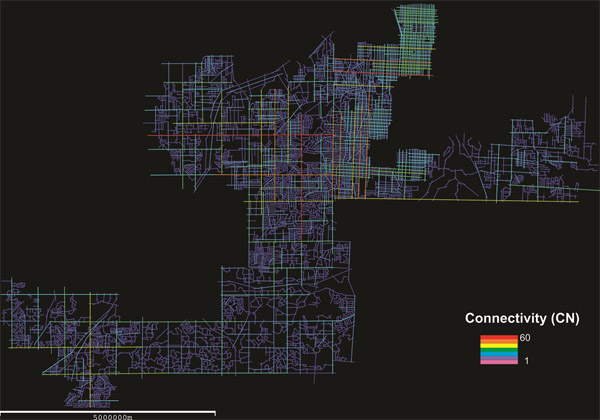Amber Watts, University of Kansas – Walkable Neighborhoods
Living in a walkable neighborhood can have some great health benefits.
Amber Watts, assistant professor at the University of Kansas, shows us how brain cognition can be enhanced by getting outside.
Amber Watts is an assistant professor of psychology at the University of Kansas. She studies the effect of physical activity on health and cognitive function in older adults with and without Alzheimer’s disease in cooperation with the KU Alzheimer’s Disease Center in Kansas City.
Walkable Neighborhoods

We wanted to find out if there were health benefits to older adults who live in neighborhoods that promote walking. First we had to define a walkable neighborhood. A neighborhood that inspires walking should be full of pleasant things to look at and have walking trails or shade trees. It should have someplace worth walking to, like neighbors’ houses, stores and parks.
A walkable neighborhood needs to be safe. That means having things like traffic lights that give ample time to cross, sidewalks in good repair, and benches for rest. We judged walkability using geographic information systems — maps that measure spatial data. This can tell us about roads, sidewalks, elevation, terrain, and distances. We also looked at how complicated a route is to get from one place to another. Is it a straight line from point A to point B, or does it require a lot of turns to get there?
We studied 25 people with mild Alzheimer’s disease and 39 older adults without cognitive impairment. We estimated a walkability score for their home addresses and linked these scores with health outcomes and performance on cognitive tests over two years, accounting for age, gender, education and wealth. Our results showed that living in neighborhoods with more places to walk to resulted in better health and cognitive outcomes.
What’s really interesting is we found more intricate community layouts, requiring more complicated navigation, might help keep minds sharp. We think these challenges are good for us. They help keep us active and working at an optimal level instead of choosing the path of least resistance.
When the environment presents challenges that are reasonable and within our ability level, it keeps our bodies and minds healthy. We believe that older adults, health care professionals, caregivers, architects and urban planners could all benefit from these findings.
Read more:
The Oregonian: Portland’s walkable neighborhoods may boost brain power
International Business Times: How walking can ward off cognitive decline; 8 other benefits
Planet Save: Walkable neighborhoods linked to less cognitive decline
Timing 1:42




